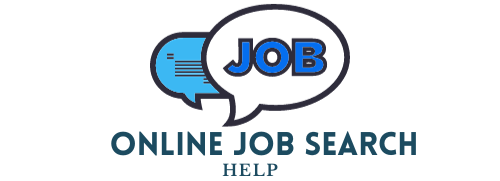Should You Be Interviewing For A Job You Don’t Want?
Most people would say that if you’re interviewing for a job you don’t want, then it’s better to not take the offer. However, there are many reasons why this might not be true.
For one thing, some jobs are so terrible that they force employees to leave after a short time of being there because they can’t handle the stress or the working conditions.
When you’re looking for a job, you might not be in the best position to be too choosy. You might have to take whatever job is offered to you in order to get started in your career.
Another reason why you might want to consider interviewing for a job that you don’t want is if you’re not sure what you want to do. If you’re fresh out of college or you’ve been working in the same industry for a while and you’re not happy, then it might be time to make a change.

Table of Contents
Benefits Of Interviewing For A Job You Don’t Want
Expand your professional network as a result of participating
Almost everyone gets a job because of their professional connections. Regardless of industry or function, this is true.
However, interviewing may not be the best way to build a large network, but it may be the best way to build a specific network for a certain industry. If you keep in touch with HR professionals, business leaders, and recruiters, regardless of your interview outcomes, they will remember you.
Make use of a deal as a foundation
Interviewing for numerous opportunities, one of which you are truly interested in maybe a possibility at any given time. This strategy can be used in cases where the organization’s hiring procedure is taking longer than expected and the company hasn’t yet offered any positions.
Being open and honest is the best strategy. Inform the company in a professional manner that you have other offers waiting and that you must respond to those companies promptly.
The organization you truly want to work for may make a decision if you show them that your abilities are in demand.
You’ll become more self-aware as a result
It’s a shame that we don’t solicit input more frequently. We can spend all the time we want introspecting ourselves, but it’s impossible to learn about our interpersonal skills and flaws without getting feedback from others.
Colleagues and employers aren’t always objective when they give feedback. Because they are not directly involved in the hiring process, recruiters and hiring executives are more likely to be impartial in their assessment of a candidate.
The more you practice, the better you get
Interviewing not only helps you improve your elevator pitch but also gives you a glimpse into the hiring process at different companies. The vetting process allows you to see what works and what doesn’t. As a bonus, you’ll be able to practice answering a variety of interview questions. Your ability to tell your narrative will improve with each interview you conduct. In addition, you’ll improve your interviewing skills when the time comes for you to make a hire.
Determine what it is that you are looking for
You’ll have a better sense of what you’re searching for in a job if you apply for multiple positions. There are a number of factors to consider, such as the importance of the company’s culture or the fact that you prefer working in a smaller office.
A better understanding of what’s most important in a job can only come from interviewing a variety of employers and learning about their cultures and working environments.
This will allow you to ask better questions of the hiring manager and, eventually, help you locate a position that is the perfect fit for your skills and experience. Even if you don’t get the job, the experience of going through the interview process can be extremely beneficial for your future career goals.

Disadvantages Of Interviewing For A Job You Don’t Want
There are a few disadvantages to interviewing for a job you don’t want. The first is that you might not be as prepared for the interview because you’re not interested in the job. You might also not be able to give your best performance because you’re not motivated to get the job.
Another disadvantage is that it can be difficult to balance two jobs if one of them is a job that you don’t want. You might also get burned out more quickly if you’re working a job that you’re not interested in.
Should You Take A Job You Don’t Want?
The answer to this question depends on a lot of different factors. You need to consider what the job is like, how the job will help you achieve your goals, and whether or not you’re going to be happy in the job.
If you’re not sure whether or not you should take a job that you don’t want, then you should consider speaking to a career counselor.
Factors That Affect How You Choose A Job
There are a few factors that can affect how you choose a job. The first is your career goals. You need to consider what you want to achieve with your career and find a job that will help you reach your goals.
The next factor is the company’s culture. You need to make sure that the company’s culture is a good fit for you. You also need to make sure that the company is ethical and has a good reputation.
The last factor is the job itself. You need to make sure that the job is interesting and challenging, and that it’s a good fit for your skills and experience.

Final Thoughts
Interviewing for a job that you don’t want can help you figure out what you really want to do with your career. It can also help you learn more about the industry that you’re interested in and the company’s culture.
At the end of the day, it’s up to you whether or not you want to interview for a job that you don’t want. Just make sure that you weigh all of your options before making a decision.







